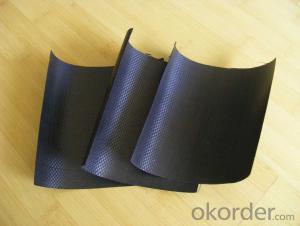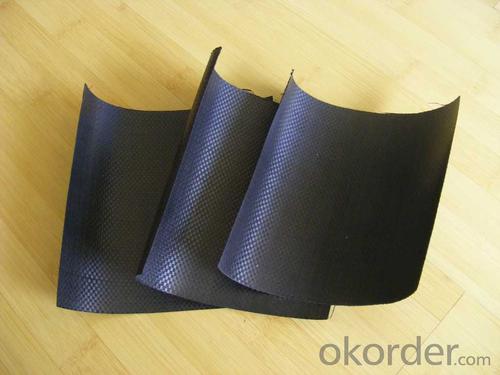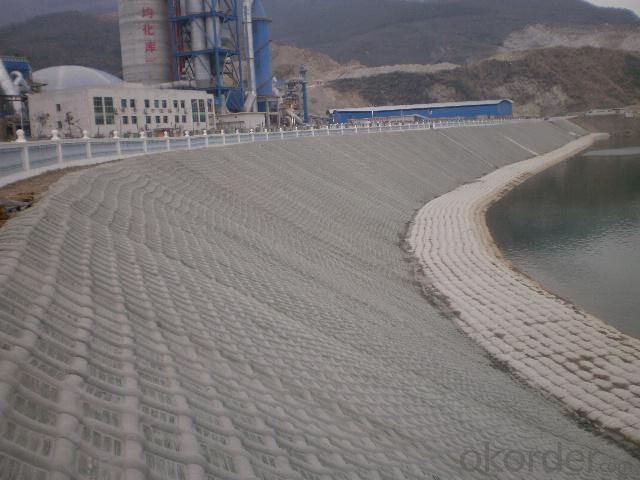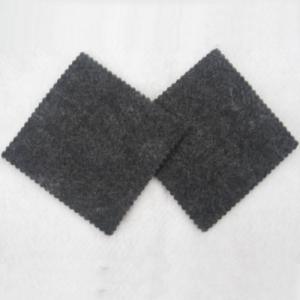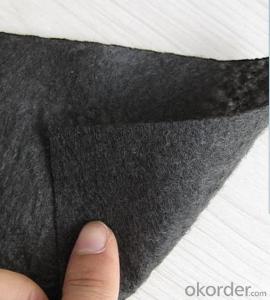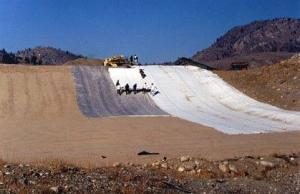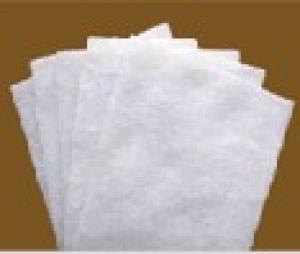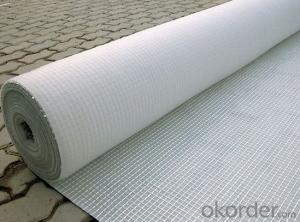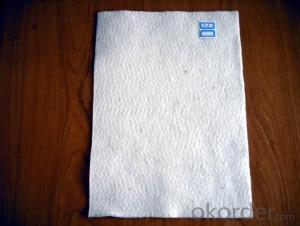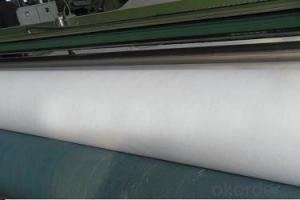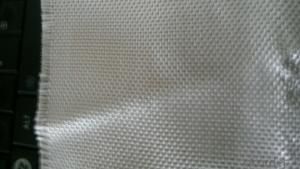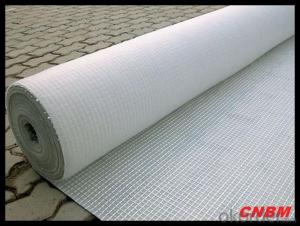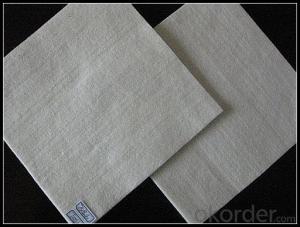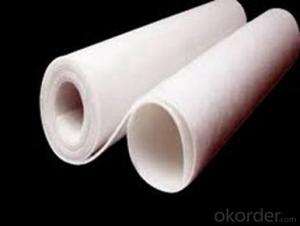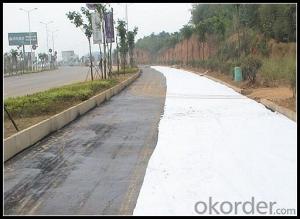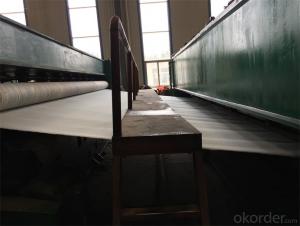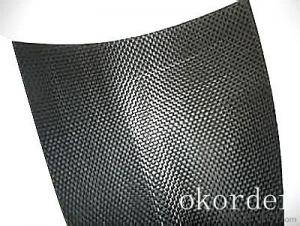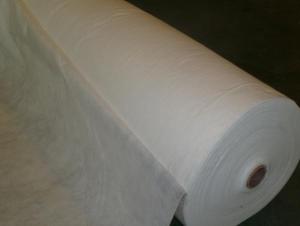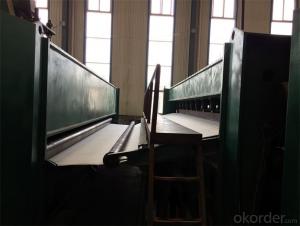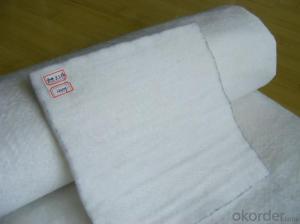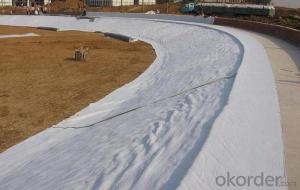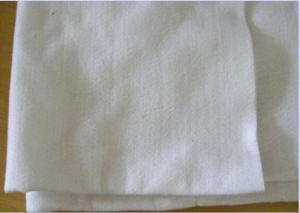Geotextile 5m Road Building Constructive Felt Fabric Geotextiles
- Loading Port:
- Tianjin
- Payment Terms:
- TT OR LC
- Min Order Qty:
- 1000 g/m²
- Supply Capability:
- 100000 g/m²/month
OKorder Service Pledge
OKorder Financial Service
You Might Also Like
Packaging & Delivery
| Packaging Detail: | Woven bags |
| Delivery Detail: | within 10 days after order confirmation |
Specifications
nonwoven geotextile
material:polyester staple fibre
Polyester geotextiles
PET geotextiles
Functions of geotextiles
1.Separation
The isolation of the railway dregs and the roadbed, roadbed and the soft base, surface of the airdrome and parking lot and the groundsill, different dam materials. It isolates the soil and the gravel of two kinds different
granule pathway from the groundsill or other buildings.
2.Reinforcement
The highway, railway, soil-stone dam, breakwater, airport, backfill soil of retaining wall, slope protection, etc in which distributes the earth stress, prevents the side-displacement of the earth body and improves the earthbody stability.
3.Protection
It prevents the bank from being washed out, protects the bank and the
bottom, prevents the water and soil from being washed away
Short fiber nonwoven geotextile technical data
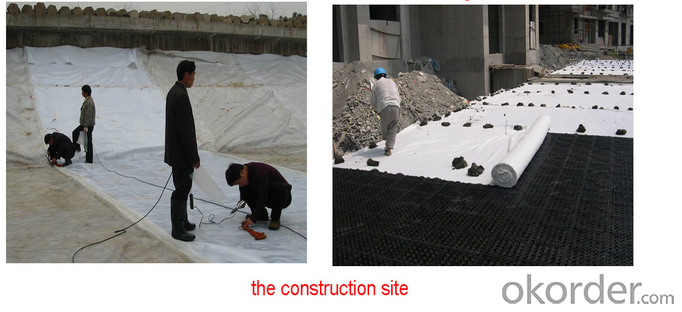
FAQ:
♦ Payment terms: by T/T or L/C |
♦ MOQ:2000 SQM |
♦ If you are interested in our products ,pls advice me the technical index,product weight etc,the more information the better..... |
- Q: Can geotextiles be used in underground construction applications?
- Yes, geotextiles can be used in underground construction applications. Geotextiles are commonly used for various underground construction purposes such as soil stabilization, erosion control, filtration, and drainage. They provide reinforcement and separation between different layers of soil, preventing mixing and enhancing the overall stability of the construction.
- Q: Under what circumstances drainage pipes need additional geotextiles
- Infiltration of water under the circumstances, geotextile play a filtering effect, Huazhi geotextile material manufacturers
- Q: Can geotextiles be used in the construction of artificial ponds?
- Yes, geotextiles can be used in the construction of artificial ponds. Geotextiles are often used as a lining material for ponds to provide reinforcement, filtration, and separation between the soil and water. They help to prevent erosion, control soil movement, and improve overall stability of the pond structure.
- Q: How do geotextiles help in preventing clogging of drainage systems?
- Geotextiles help prevent clogging of drainage systems by acting as a filter, allowing water to pass through while preventing the entry of fine particles and debris that could potentially clog the system.
- Q: Is the polypropylene composite geotextile and the polyethylene composite geomembrane the same?
- Geotextiles and geomembranes are not the same, but they complement each other to meet the engineering requirements. First introduced under the geotextile: geotextile is the state for civil engineering in the construction of a new type of construction materials, by filament or short fiber through different equipment and process shop into a mesh, and then after acupuncture and other processes to different Fibers are intertwined with each other, tangent to the fabric to make the fabric normal, so that the fabric is soft, plump, thick, stiff, to meet the different thickness to meet the requirements, according to the length of silk is divided into filament non-woven geotextile or short wire Non-woven geotextile, filament tensile strength higher than the short wire. Fibrous soft with a certain tear resistance. The main role is: filter, filter, reinforcement role. Specifications from 100 grams per square meter to 800 grams per square meter. The main material for the polyester fiber, with excellent permeability, filtration, durability deformation adaptability, and has a good flat drainage capacity (see below) Geomembrane to plastic film as anti-seepage substrate, and non-woven composite Made of geotextile impermeable material can be divided into two cloth a film, a cloth a film, its impermeability depends mainly on the plastic film impermeability. The geomembrane is a waterproof barrier material with the polymer of the polymer chemical material as the basic raw material. The proportion of small, strong extension, high adaptability to adapt to deformation, corrosion resistance, low temperature, good frost resistance. (See below)
- Q: How do geotextiles help with soil reinforcement in soft ground conditions?
- Geotextiles help with soil reinforcement in soft ground conditions by providing a stable and strong layer that distributes the load more evenly. They act as a barrier and prevent the intermixing of different soil layers, improving the overall stability and strength of the ground. Additionally, geotextiles can help with drainage by allowing water to pass through while retaining the soil particles, preventing erosion and maintaining the integrity of the ground.
- Q: Are geotextiles suitable for use in reservoir lining?
- Yes, geotextiles are suitable for use in reservoir lining. They are a cost-effective and efficient solution for preventing soil erosion, enhancing filtration, and providing stability to the reservoir's lining. Geotextiles can effectively separate different soil layers, improve drainage, and prevent the migration of fine particles, which makes them ideal for lining reservoirs and ensuring their long-term integrity and functionality.
- Q: What are the different geotextile performance properties?
- Geotextile performance properties can vary depending on the specific application, but some common properties include filtration, separation, drainage, reinforcement, and erosion control.
- Q: What is the difference between woven and non-woven geotextiles?
- Woven geotextiles are made by weaving continuous individual yarns together, creating a strong and durable fabric. On the other hand, non-woven geotextiles are made by bonding or felting together synthetic fibers, resulting in a fabric that is not as strong or durable as woven geotextiles. Woven geotextiles provide higher tensile strength, better filtration, and are typically used in applications that require greater longevity and stability. Non-woven geotextiles, while less durable, are often used for filtration and separation purposes due to their high water flow rates and ability to retain fine particles.
- Q: 400 grams per square meter of non-woven geotextiles how much money
- According to your technical parameters, the specific number of professional geotextile manufacturers to answer, power to discuss!
Send your message to us
Geotextile 5m Road Building Constructive Felt Fabric Geotextiles
- Loading Port:
- Tianjin
- Payment Terms:
- TT OR LC
- Min Order Qty:
- 1000 g/m²
- Supply Capability:
- 100000 g/m²/month
OKorder Service Pledge
OKorder Financial Service
Similar products
Hot products
Hot Searches
Related keywords
